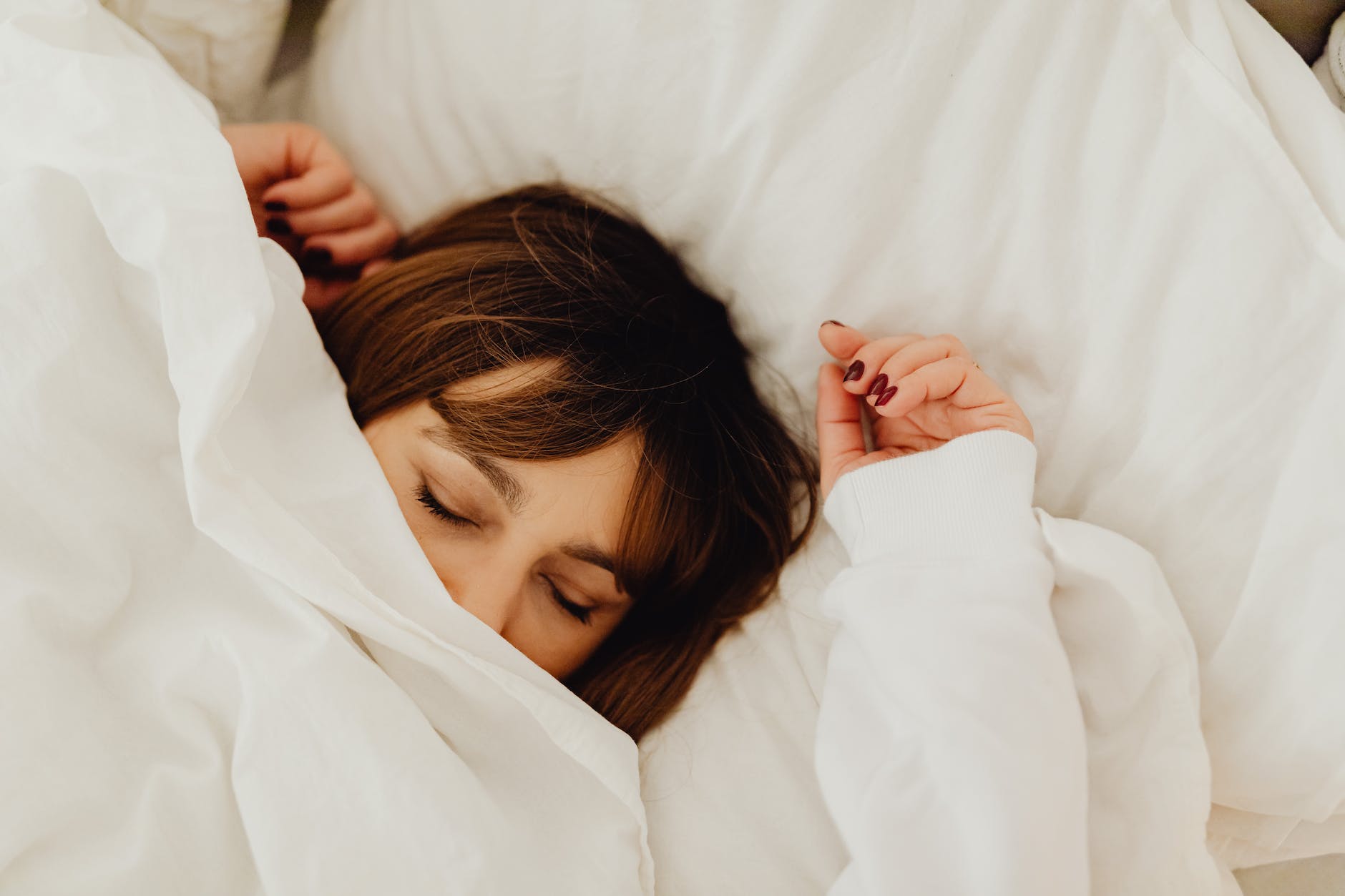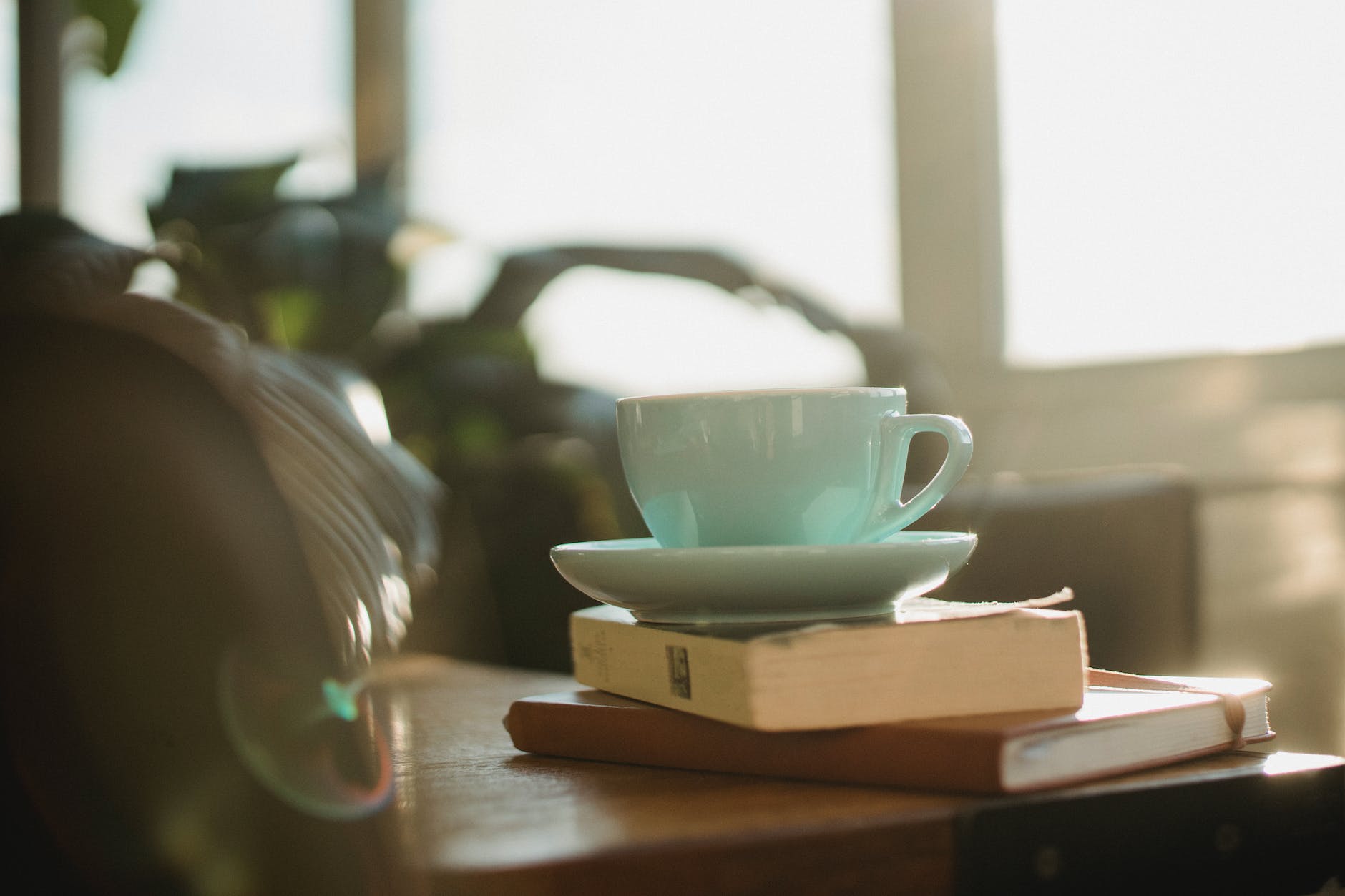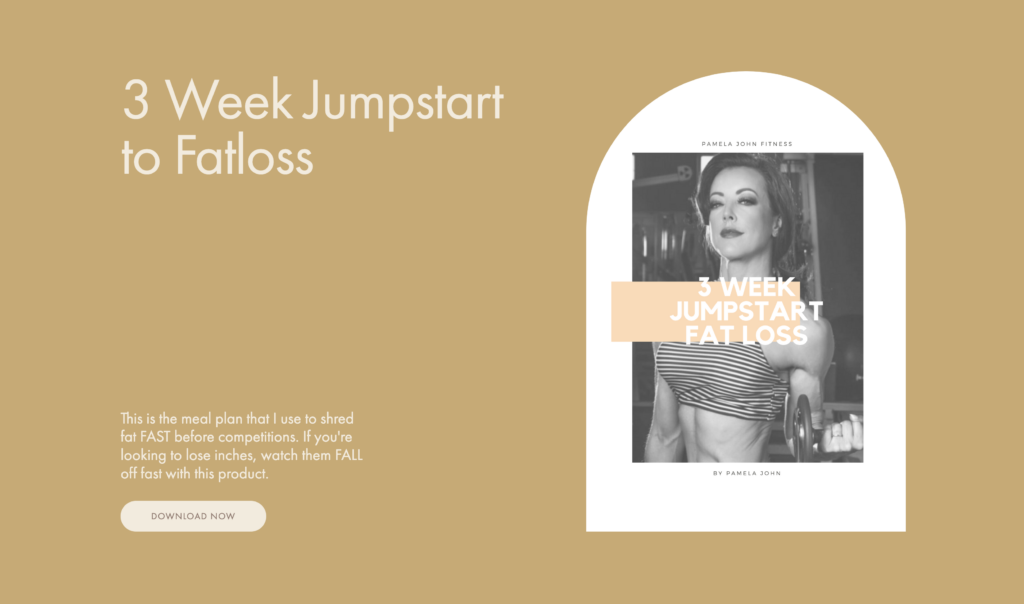“After one night of bad sleep, a metabolically healthy person becomes temporarily diabetic the next day.”
Max Lugavere
What if I told you that I improved my quality of sleep in 1 day? Would you try my Sleep Optimization Hacks?

Last year, I took a deep dive into the mechanics of sleep. I sought out information from top experts on the biggest obstacles to quality sleep and the most effective tools we can use to enhance it. After a heartbreaking year of losing my mom to multiple health conditions, losing a child through miscarriage, trying to live optimally with an autoimmune disease, and being burglarized several times, my ability to fall sleep and stay asleep had been compromised. I was determined to carve out a stronger and healthier journey for me and my family. I believe this path to a better mental and physical well-being starts with our sleep quality and I wanted to hack it.
One of the first things I wanted to do was get a better understanding of how well I was sleeping. My husband and I purchased Oura rings so we could do just that. I was pleasantly surprised to find how making small changes drastically improved my REM, Deep Sleep, and Heart Rate Variability. After months of researching and testing different products and practices, I found several that made the biggest impact. When experimenting with a new product or practice, I would isolate the independent variable and test it over several nights keeping all other variables constant.
Currently, my REM and Deep Sleep hover around 3 hours each when I’m utilizing the majority of these practices and supplements. At the beginning of my journey, when I first received my Oura ring, my REM was consistently around 1.5 hours and my Deep Sleep was around 1 hour. My Heart Rate Variability hovered between 21 and 25 and now I’ve gotten it up to 38, which is much better for my long-term health goals. Below I am sharing with you an extensive guide to the top practices and supplements that I researched and experimented with over the past few months. My hope is that you will view this as an ample resource guide and experiment with those that feel right for you. Let’s dive deep!
Tools in your Sleep Optimization Box

Curate a Wind Down Routine for Sleep Optimization
Winding down 1-2 hours before bed is ideal. This includes turning off all blue light devices (phone, computer, tv, etc) and doing something that puts you in a more relaxed state. Some people find it helpful to set up a sleep signal. Using an app, like Better Sleep, you can program a chime or music to play at a set time every night. This can train your brain to start winding down. If you are a worrier, it can be helpful to write down all the things on your mind along with your to-do list for the next day. Once they are on paper, it could get them out of your head.
Gentle stretches before bed
Or even a few slow yoga postures can help your body relax. A technique I love is to lie on the bed on my back with my neck hanging free over the bed. This will feel funny at first because your blood will naturally rush to your head since you are, in a sense, dangling but if you can hold this position for 2 minutes, it can stretch out your neck and help realign your spine. As someone with occasional back pain, this is a great tool for me to reset my back before bed.
Progressive muscle relaxation sends a signal to your nervous system to relax, which can reduce heart rate and blood pressure. One form of this is the practice of Yoga Nidra, translated as yogic sleep. This practice guides you into that realm between wakefulness and sleep. Here is an easy routine you can do while in bed. Starting with your toes and working your way up, tighten each part of your body one-by-one, hold for a few seconds, then let go. This always makes me drowsy.
Another relaxation technique I like is Vagal Toning.
This practice stimulates your vagus nerve. It switches our nervous system from sympathetic (fight or flight) to parasympathetic (rest and digest). I dare you to try this one. It will be your new favorite trick. I always feel a difference instantly! I also like to use this when I’m in a stressful situation. You don’t have to wait until bedtime to utilize it. Hold the following positions for 30-60 seconds each. First tilt your head to the right but take your gaze to the top left. After 30 seconds, keep your head tilted to the right but take your gaze to the bottom right for 30 seconds. After 30 seconds, tilt your head to the left but take your gaze to the top right for 30 seconds. After 30 seconds, keep your head tilted to the left but take your gaze to the bottom left for 30 seconds. Maximum benefits if you can hold each position for 60 seconds each. It is natural to yawn or need to swallow during this practice. I have also found it beneficial to apply the 4-7-8 breathing technique while doing it.
Another consideration in your wind down routine is a hot bath, hot shower, or a sweat session. Exposure to warm temperatures can relax the body and be a great preparation for bedtime.
Pour a Camomile Night Cap
I was happy to find that camomile does have scientific research to back-up its positive effect on sleep. In a randomized placebo-controlled pilot study, The National Center for Biotechnology Information found that chamomile decreased sleep latency (time it took to fall asleep) by 16 minutes and reduced the number of times participants woke in the night. Chamomile contains an antioxidant called apigenin, which acts as a mild sleep inducer. For me, I’ve noticed a positive impact on my Heart Rate Variability on the nights I drink camomile tea before bed. Conversely, alcohol can actually have terrible effects on your sleep. According to the National Sleep Foundation, one explanation for poor sleep after drinking is that the production of adenosine increases, allowing you to go to sleep quickly but once the chemical subsides, you are more likely to walk up throughout the night. Drinking before bed is also linked with slow-wave sleep, which indicates wakefulness with eyes closed. These combinations inhibit quality sleep.
Cool it Off
According to most sleep experts, the temperature in your bedroom does affect your quality of sleep. Most recommend somewhere in the range of 60 degree and 72 degrees. I personally have noticed a positive impact on the quality of my sleep when the temperature is set closer to 60 degrees. You could also look into temperature regulated sheets, comforters, and mattresses. A weighted blanket could be a good option for those with anxiety as it can a calming effect on the body.
Researchers have found that brown fat can help protect us from diet-induced obesity and glucose intolerance. The people with a higher proportion of brown fat tend to be younger and slimmer with normal blood-sugar levels. A study at the National Institute of Health Clinical Center tested individuals in a bedroom at 66.2 degrees for a month and then at 75.2 degrees the second month. The study concluded that during the colder month, participants’ brown fat increased, as did insulin sensitivity, which lowers the risk for type 2 diabetes. During the warmer month, these results reversed. Another great reason to keep your bedroom cooler during bedtime!
Consider Lymphatic Drainage Massage
A lymphatic drainage massage is considered a form of physical therapy. It can increase blood flow throughout the body and put you in a relaxed state. The lymphatic system is an integral part of our immune system. This type of massage can increase the amount of oxygenated blood going to your tissues while decreasing congestion. Blood flow improves tissue health and reduces tissue pressure, which improves circulation. I’ve gotten one lymphatic drainage massage since getting my Oura ring. The night following my massage, was one of my best nights of sleep I’ve had, where all of my levels drastically improved.
Wear Socks to Bed
Research suggests that wearing socks to bed can help people fall asleep faster and sleep longer with fewer wake times. A study published by the Journal of Physiological Anthropology found a group that wore socks to bed fell asleep 7.5 minutes faster, slept 32 minutes longer, and woke 7.5 times less often than those who did not wear socks to bed. This rings true for me. When I have on socks, I always fall asleep faster. This only works if the temperature in my room is cool. If it is too hot in the room, having socks on decreases my sleep quality.
Fast with Intention
Many nutritionists recommend not eating 2-3 hours before bed. This window allows some digestion to occur and gives time for the food in your stomach to move into your small intestine. Eating also prompts the release of insulin, which shifts your body’s circadian rhythm (sleep-wake cycle). All in all, eating right before bed can interfere with your ability to fall asleep on many levels. On this note, researchers also recommend waking with the sun and getting outside quickly after waking. Along with avoiding eating after the sun goes down. This can optimize your circadian rhythm.
Meditate, Give Gratitude and Focus on Breathing
Researchers have found that meditation can train your mind to relax more easily. I’ve also found that meditating or doing a short gratitude practice before bed consistency increases my Heart Rate Variability (the amount of time between your heartbeats). Heart Rate Variability is an important indicator of physiology and can predict current or future health problems, including a heart attack as well as mental health issues like anxiety.
Another effective tool to a better Heart Rate Variability is focused breathing. One technique is the 4-7-8 relaxation exercise that involves breathing in for four counts, holding that breath for seven counts, and exhaling for eight counts. This has ancient roots in pranayama, which is the yogic practice of breath regulation.
Wear Blue Blocking Glasses
If you purchase a high quality pair, many people have found that it is effective in blocking premium blue light and artificial light. This in turn can increase your sleep quality by improving your sleep length and the amount of time you are in Deep Sleep. My husband and I have experimented with these for a few months. My husband swears he falls asleep quicker and has better sleep levels when he wears these 30 minutes to 1 hour before bed. For me, the verdict is still out. I’m not sure yet if I can tell a difference. Once I conclude my other experiments, I do plan on revisiting these for testing.
Supplements to Help With Sleep Optimization

Berberine
Berberine is a plant derived extract from tree bark. It can reduce glucose output, LDL cholesterol, MTOR (mechanistic target of rapamycin), and sugar cravings. According to Dr. Andrew Huberman at Mara Labs, berberine can increase dopamine levels by 25% and serotonin levels by 30%. In addition to this, Dr. Huberman has found that if you combine berberine and sulforaphane (broccoli sprouts are extremely high in this compound) it inhibits myostatin, which increases muscle growth.
Personally, I have found that my Deep Sleep substantially increases when I take berberine before dinner. Berberine also causes me to have vivid dreams, a common side effect for many users. I don’t experience sugar crashes if I take a dose before a sugary dessert. If you combine berberine, sulforaphane, and curcumin, Dr. Huberman says they work in synergy for maximum benefits. Previous studies have shown sulforaphane to have positive effects in the reduction of cancer cells and aid in detoxifying the body, which could be helpful after an indulgent night. They have also found that it can repair brain inflammation. For me, berberine, sulforaphane, and curcumin is a package
Magnesium
On the nights I took a magnesium l-threonate supplement or applied a topical magnesium cream, my REM increased on average around 30 minutes. The best effects have been when I have used both together. Another bonus of magnesium l-threonate is that is has been shown in studies to cross the blood brain barrier readily and coincides with improvements in cognitive function. Topical forms of magnesium, also called transdermal magnesium, absorbs quickly and effectively into the skin. This is great option for those who don’t want to take another supplement and want the added benefit of relieving muscle aches. Magnesium chloride bath flakes are another great option to use before bed.
Shitake Mushrooms
Many people have found that mushrooms can help improve their sleep. After reading countless reviews on a dual-extract shiitake mushroom tincture and the increases they were seeing in their REM sleep, I had to try it. I will have to agree with many others that I did notice a positive impact on my REM sleep when I took it right before bed. I found this to also be true when I ate shiitake mushrooms that day. However, when I added in the other tools and supplements mentioned here, I didn’t find that the shiitake mushroom extract increased my levels more than the others. I’m taking a small break from it for now but will revisit in future experiments.
Kava
A fairly new kid on the block is kava. It is a beverage or extract made from a plant in the South Pacific. It was originally used in ceremonials for relaxation purposes. Kava has been shown to positively affect the brain and other parts of the nervous system. Studies have found that it can elevate your mood, well being, and can be useful in the treatment of anxiety, insomnia, and some nervous disorders. I just started experimenting with this so I will have to keep you posted on its effectiveness. Initially, I can tell you that it does relax me but with some added clarity and alertness. For those wanting an alcohol-free option, this could be a good alternative!
Melatonin
I have personally found that 10 grams of melatonin is highly effective when I can’t fall asleep, no matter what I’ve tried. This has happened a few times during the midst of traumatic events. I also like to have it on hand when I get sick and have trouble with latency (time it takes me to fall asleep). During my experimenting, melatonin never increased my REM, Deep Sleep, or improved my heart rate variability. What it did do is help me to fall asleep quicker and in most cases stay asleep for most of the night. Unfortunately it does leave me feeling a little groggy the next day. If staying asleep is something you struggle with, melatonin might be a great tool for you.
It is important that we view these recommendations through a broader lens. You are not going to do everything 100% all the time. These are general principles to strive for while having the flexibility to deviate. Life is meant to be fun and sometimes the best nights are the ones where you are not sleeping!
As we take off into the new year, I challenge you to become your own health advocate. Curious about something? Take a deep dive to learn more. Frustrated with your current performance in an area? Focus on specific steps you can take to improve. Where focus goes, energy flows. Focus in on what you want and then dive deep!
Start small. Start manageable. Build on tiny changes
As for tonight, I wish you the best sleep of your life!
Melissa Turner, Sleep Enthusiast
*Disclosure: I am not a health practitioner. These thoughts are from my insatiable quest for a better night’s sleep through the culmination of many years of research from various sources and my own personal experimenting
If you want to learn more about the products I tested, my future experiments, or my personal wellness journey, follow me at www.WellxMel.com.
I hope you enjoyed this blog guest! If you would like to read more of our guest blogs, check out this post by Lea Richardson Cobb from Resilient Spine! Lastly, If you’re looking for a meal plan to help you lose weight, glute workouts that will help you get the perfect peach, or a 21 day jumpstart workout plan that will help you get back to the gym, I’ve got you covered! Stay in touch on Instagram and Pinterest & don’t hesitate to reach out if you have any questions!

COMMENTS